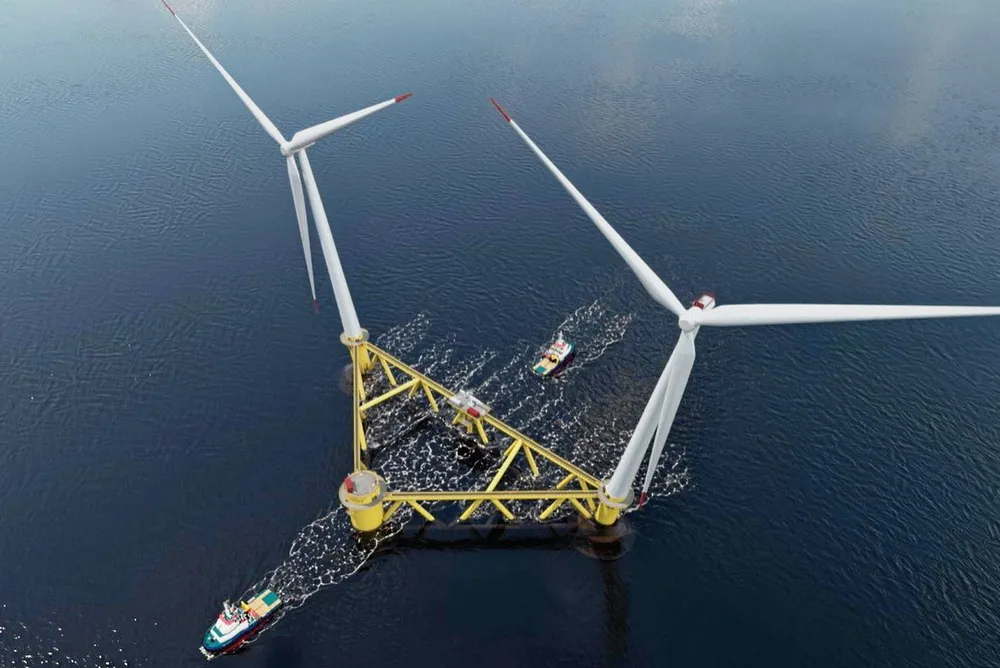'Stressed' floating wind pioneer clear for crucial Shell deal after Korean OK
Hexicon CEO says approval of licenses for MunmuBaram allows purchase of project and removes uncertainty over financing

The CEO of floating wind pioneer Hexicon said it can move ahead with efforts to alleviate its “stressed” financing position following crucial South Korean regulatory approvals over the MunmuBaram project it is buying from Shell.
Marcus Thor told investors in Hexicon – which has seen its share price crash by more than 70% this year – that this week's approval for the transfer of two out of three Electricity Business Licences (EBLs) relating to MunmuBaram means it can complete its purchase agreed with Shell in February of the up to 1.1GW project, which is currently 80% owned by the oil giant.
Hexicon agreed to pay Shell $5m up front and up to $50m in profit sharing when MunmuBaram enters operation.
Thor said he is now also optimistic that with uncertainty over the licenses removed, Hexicon, which described its current position as “stressed”, can also finalise new short-term financing arrangements ahead of the expiry of an existing credit facility on 31 December, when “significant debts” mature.
The approval for Hexicon to take on two of the three MunmuBaram EBLs, equating to about 750MW of capacity, “is now big enough for us to push forward hard, it’s valuable, we’re moving forward with it”.
Asked by investors why the third EBL had not yet been approved, Thor said “the whole regulatory process comes with a strict need to show financial backing. So far, we’ve been able to satisfy the authorities with regard to two out of three. We’re working on the third.
“But regardless of that we have a project that’s worth moving ahead with,” said the CEO, although he would not be drawn on whether MunmuBaram would be in a position to enter next year’s Korean offshore wind auction.
Sweden unique with 'drastic measures'
They included the multi-gigawatt plans being advanced by Freja Offshore, Hexicon’s joint venture with Mainstream Renewable Power.
Thor said Sweden is “unique in taking such drastic measures such as this against the entire offshore wind industry for a complete region. Other markets are developing offshore wind in synergy with defence strategies.”
Thor said Hexicon, which lost SKr33m ($3m) in the third quarter, is battling to stay on track in a floating wind sector where market conditions are “not the best” and which has seen costs rise over the last two years instead of falling as expected.
An action plan to address the “new reality” includes a focus on the most promising projects, an end to plans to enter the US and a review of costs across its business.
Hexicon will also look for a site-sharing partner at its TwinHub floating wind project in the UK.
Thor insisted that despite the immediate headwinds, the longer-term outlook for floating remains highly promising with global development set to gather pace from the end of the decade.
(Copyright)